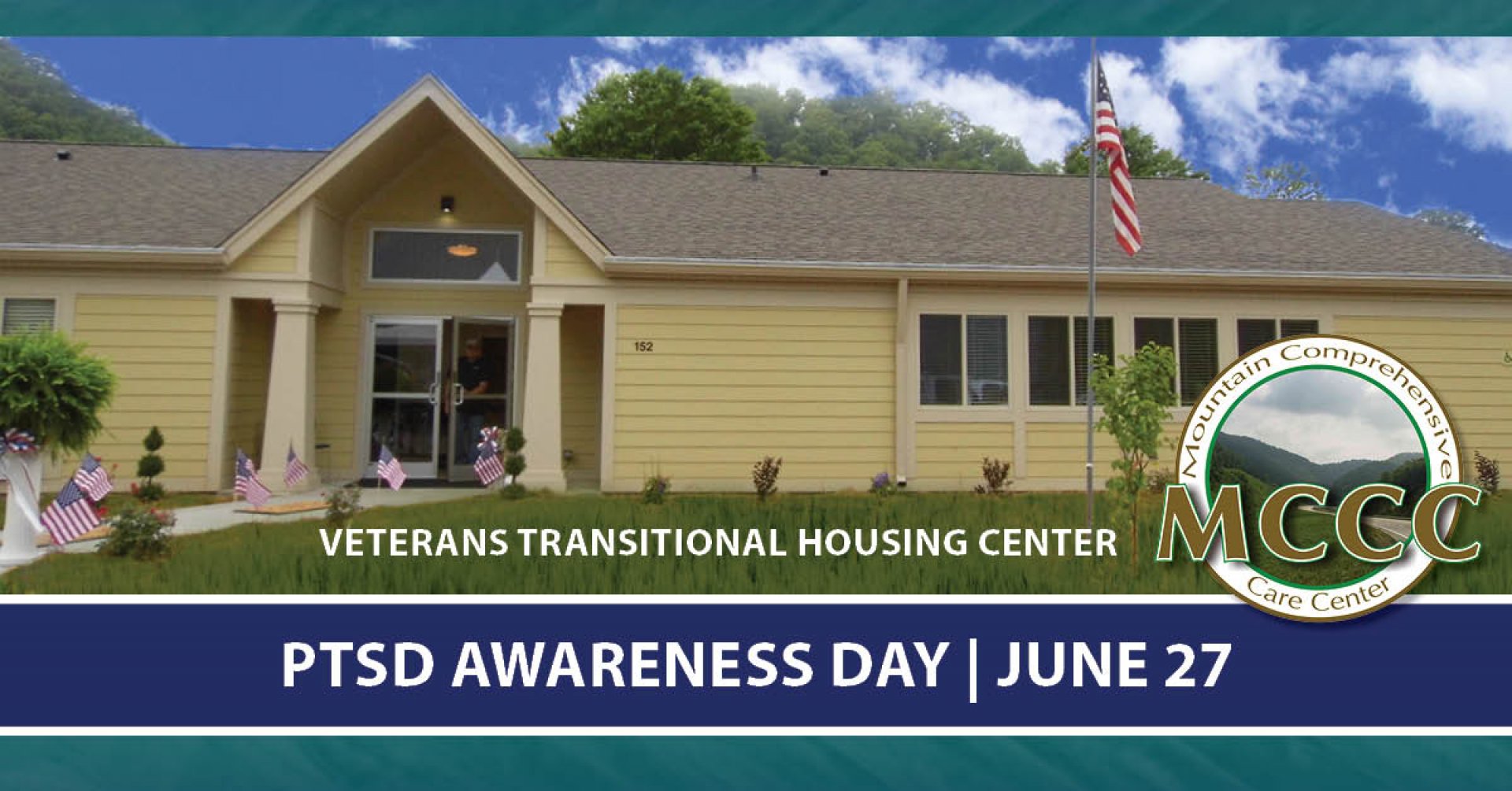PTSD an Issue for Homeless Veterans

PTSD an Issue for Homeless Veterans
VTHC offers Hope
June 5, 2018
Location: Pikeville KY
PTSD an Issue for Homeless Veterans
Veterans account for nearly 15% of our nation’s homeless population. Last year, the U.S. Department of Housing and Urban Development reported that more than 40,000 veterans throughout the country were found to be homeless. This is a staggering statistic, and for many veterans experiencing homelessness, the struggles associated with Post-Traumatic Stress Disorder (PTSD) have been the cause.
June 27 is PTSD Awareness Day. “PTSD is a single symptom or cluster of symptoms that are present after experiencing or witnessing a traumatic event. Without treatment, these symptoms can prevent a person from living life to the fullest,” notes John Shaver, Program Manager at Mountain Comprehensive Care Center’s Veterans Transitional Housing Center (VTHC). “These may include hypervigilance, emotion separation or distancing from family and loved ones, sleep disturbances, ‘flashbacks’ of the trauma, and avoidance, along with many others.”
Anyone can develop PTSD. The National Center for PTSD estimates that approximately 8 million adults will have symptoms of PTSD in a given year, vastly more than the number of veterans diagnosed. Although the cause of PTSD is identifiable, each case is unique: “There is no standard event that is considered traumatic,” said Shaver, as no two people experience events in the same manner. “Likewise, PTSD affects each individual differently. As a result, some who are affected by PTSD find themselves homeless. This can happen when PTSD symptoms impact their lives significantly enough to prevent them from functioning properly in society.”
While PTSD can result in homelessness, it is not typically the first effect of PTSD. “More often, symptoms of PTSD cause the loss of employment and emotional isolation, damaging one’s connection with friends and family. The resulting gap or absence of natural supports may lead to homelessness.” Shaver discusses his team’s plan of action in serving those battling PTSD. “Mountain Comprehensive Care Center’s VTHC utilizes a two-pronged approach to aid those affected by PTSD. First, we provide the veteran with a safe and secure environment, allowing the veteran to shift their concerns from daily survival skills, and instead focus on daily recovery and living skills. Additionally, we provide the veteran with therapy – a service that is accessible 24/7 – along with our Therapeutic Rehabilitation Program.”
Shaver points to hope for homeless veterans struggling with PTSD. “Many of our residents experience a variety of symptoms related to PTSD. In one case,” he remembers, “the veteran’s PTSD was the result of situations he experienced after becoming homeless. This veteran did not allow his homelessness and trauma to keep him down, though. Once he arrived at the VTHC he was able to focus on finding housing and transition into the community effectively for the first time in many years.”
“Know that you are experiencing the effects and symptoms of PTSD.” Shaver encourages those who have struggled with PTSD to reject the stigma associated with their symptoms, including non-veterans. “You’re just in a period of mental and emotional growth. Just as important, know you are not alone during this time; there are people that care about you and people that want to help. If your symptoms become too strong or they become prolonged, give us a call at our Crisis Line 24 hours a day, 7 days a week at 1-800-422-1060.”
To learn more about PTSD, visit the National Center for PTSD, available through the U.S. Department of Veterans Affairs at www.ptsd.va.gov
PTSD Foundation of America’s Veterans Crisis Line: 1-800-273-TALK (8255)
Mountain Comprehensive Care Center’s 24 Hour Crisis Line: 1-800-422-1060
MCCC’s Veterans Transitional Housing Center has 25 units available to serve homeless veterans. Residents are provided housing and supportive services for up to 2 years while transitioning into permanent housing. The Huntington VA Medical Center provides health care services for the veterans, and MCCC staff works closely with VA Medical Center staff and local veterans service representatives to ensure each veteran receives any and all benefits to which they are entitled.
MCCC Veterans Transitional Housing Center
152 Douglas Parkway
Pikeville, KY 41501
606-639-3178
